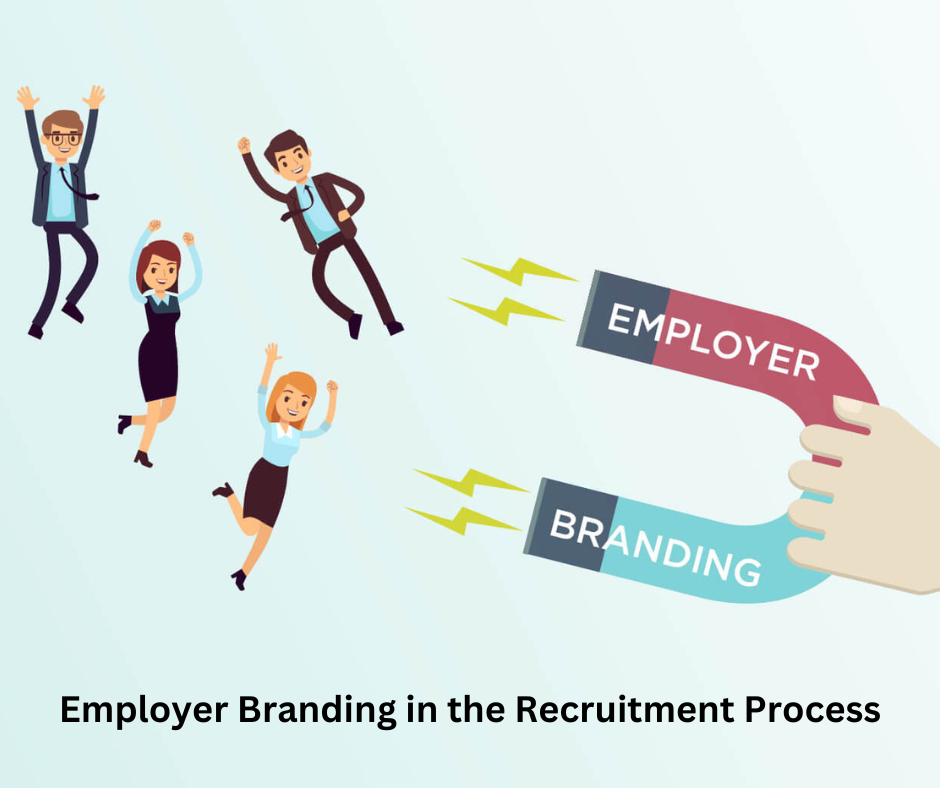
The Importance of Employer Branding in the Recruitment Process
Employer branding plays a crucial role in the recruitment process and has a significant
impact on an organization’s ability to attract and retain top talent. It refers to the way an
employer is perceived in the eyes of potential and current employees, as well as external
stakeholders.
This rat race now includes the recruitment sector as well. The recruitment teams’
search for the desired talent has become more challenging due to the increased
competition for top talent. How can an HR professional or recruiter maintain their
competitive edge over the long term in today’s world? Various elements govern this
situation.
What is Employer Branding?
Employer branding refers to the process of shaping and promoting an organization’s
reputation and image as an employer. It is the perception that potential and current
employees, as well as external stakeholders, have about the company as a place to
work. Just like traditional branding aims to create a positive image of a company’s
products or services in the minds of consumers, employer branding aims to create a
positive image of the company as an employer in the minds of job seekers and
employees.
Employer branding encompasses various elements, including the organization’s culture,
values, work environment, employee benefits, career development opportunities,
leadership style, and overall employee experience. It is not just about attracting talent
during the recruitment process, but also about retaining employees and building a loyal
and engaged workforce over the long term.
Here are some key reasons highlighting the importance of employer branding in the
recruitment process:
- Attracting top talent: In a competitive job market, talented candidates have the
luxury of choosing where they want to work. A strong employer brand can differentiate
an organization from its competitors, making it more appealing to top candidates. A
positive reputation and appealing company culture can attract high-quality candidates
who are more likely to fit well within the organization. - Retaining employees: Employer branding doesn’t end with the recruitment process;
it also has a significant impact on employee retention. When employees have a positive
perception of their employer and feel a solid connection to the company’s mission and
values, they are more likely to stay with the organization for the long term. - Cost-effectiveness: A strong employer brand can reduce the cost of hiring.
Organizations with a positive reputation find it easier to attract candidates organically,
reducing the need to spend exorbitant amounts on recruitment agencies and job
advertising. - Employee engagement and productivity: Employees who are proud to be
associated with a well-regarded employer are generally more engaged, motivated, and
productive. A positive employer brand fosters a sense of belonging and loyalty among
employees, leading to better performance and higher job satisfaction. - Brand ambassadors: Employees who have a positive experience working for an
organization become brand ambassadors, spreading the word about their employer to
friends, family, and their professional network. Positive word-of-mouth can significantly
enhance an organization’s reputation and attractiveness to potential candidates. - Diversity and inclusion: An inclusive and diverse employer brand can attract a
broader range of candidates from different backgrounds and experiences. A
commitment to diversity and inclusion can help an organization tap into a wider talent
pool and foster a more innovative and creative workforce. - Long-term business success: A strong employer brand is not only about attracting
talent today but also about building a sustainable and prosperous organization for the
future. A positive employer brand contributes to long-term business success by
ensuring a stable and engaged workforce. - Adaptability to market changes: Organizations with a solid employer brand are
better equipped to weather economic downturns and market fluctuations. During
challenging times, they can still attract top talent because of their positive reputation and
perceived stability.
In conclusion, employer branding is a powerful tool in the recruitment process that can
help organizations attract, retain, and engage top talent, enhance their reputation, and
drive long-term business success. Investing in a positive employer brand can pay
dividends in the form of a talented and motivated workforce that contributes to the
organization’s growth and prosperity.
A strong employer brand can no longer be created in a single step. It is a labor-intensive
process that is ongoing. Understanding the value of employer branding and how it
affects your hiring procedures is the first step. You can jumpstart your employer
branding process using Futuremug. Futuremug is an Interview Outsourcing Company
in Kerala , Bangalore,Chennai, Delhi